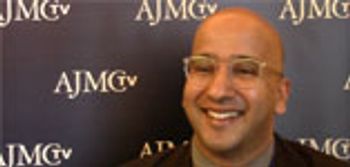
Addiction is a national scourge. Cognitive Technologies are needed to deal with this very expensive illness.

Addiction is a national scourge. Cognitive Technologies are needed to deal with this very expensive illness.

Telehealth follow up consultations after a surgical operation have become preferred compared to in-person visits, according to 2 recent studies.

Complex interventions from hospital settings mapped to Omaha System terms commonly used in community care; demonstrating its potential as a tool for interoperability across settings.

Electronic databases promote a safe environment for healthcare professionals by facilitating retrospective analysis of errors; however, providers should make significant changes to how they handle patient information.

The federal government intends to modernize the US health information technology (IT) infrastructure so patients, providers, and communities can achieve health and wellness goals.

AstraZeneca hopes to harness the open source platform of the DREAM challenge, releasing preclinical data to discover synergistic cancer drug combinations.

The next 20 years will bring greater use of big data and health information technology in managed care, but the challenge is using that technology to place patients in charge of their own healthcare, said Rajesh Balkrishnan, PhD, associate director for research and education at the University of Michigan Center for Global Health.

Meaningful use stage 3 is not scheduled to start until 2017, but 41 medical societies are calling to delay the start of stage 3, especially given recent changes to Medicare.

The path to President Obama's Precision Medicine Initiative has been paved as is evident from a report released by a Working Group convened by the National Institutes of Health.

Given how much technology will evolve over the next 20 years, predicting the future of healthcare is almost impossible, but Margaret O'Kane, MHA, president of the National Committee for Quality Assurance, expects big things from telemedicine and predicts new investigations in motivating patients to take control of their own wellness.

The American Society of Clinical Oncology has urged Congress to recognize the impact of barriers to interoperability of electronic health records on patient outcomes.

There are a couple of health information technology challenges facing new accountable care organizations that are bringing together different entities with disparate systems that need to learn to work together, explained Scott Berkowitz, MD, MBA.

Research has shown that telehealth has the potential for better care at lower costs and with increased convenience, but the issue of paying for this service has yet to be addressed.

A study evaluating EHRs has identified ways to make them more efficient for physicians, with the goal of improving patient care.

In 1 month, the US healthcare system will transition to International Classification of Diseases, 10th Revision, whether or not physicians are ready to implement the new coding system.

A large majority of healthcare organizations have been compromised by a cyberattack during the last 2 years and only half believe they are adequately prepared for preventing these attacks.

Although hospital consolidation has not shown the benefits proponents had touted, it is inevitable that there will be consolidation in healthcare, because the environment is too challenging for smaller hospitals and many physician practices, explained Paul Ginsburg, PhD.

A trigger built in patient EHRs can avoid follow-up delays in those at risk for developing certain types of cancers, a JCO study shows.

While health information technology can be a solution for primary medication nonadherence, it can also be burdensome, according to Lauren Harner, JD, senior manager of policy at PhRMA.

In a way, healthcare has spearheaded the forefront of the universal connectivity with common objects. In the world of Big Data, healthcare is now uniquely positioned to take the next step.

Aledade, launched by former national coordinator for health information technology Farzard Mostashari, MD, is looking to expand its footprint throughout the United States to another 7 states in 2016.

The network, PEDSnet, combines big data from electronic health records with family engagement

Older adults in rural areas face a number of barriers to getting treatment for mental health issues, such as generalized anxiety disorder, but the use of telephone-delivered cognitive behavioral therapy can yield significant results.

Half of primary care providers have generally negative views when it comes to the increased reliance on quality metrics to assess their performance, according to a new study from The Commonwealth Fund and Kaiser Family Foundation.

Although technology is becoming an increasingly important tool in healthcare, it should not be used with the intent to replace human care and relationships, explained Trishan Panch, MBBS, MP, chief medical officer of Wellframe.

259 Prospect Plains Rd, Bldg H
Cranbury, NJ 08512
© 2025 MJH Life Sciences®
All rights reserved.
